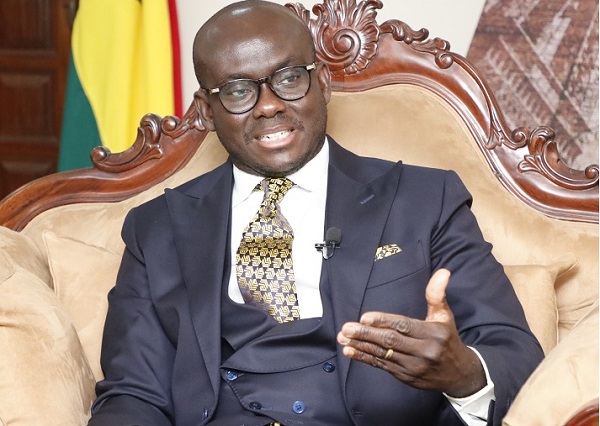
Attorney-General's insufficient position on constitutional reform
Ghana's Attorney-General, Godfred Yeboah Dame, says that the 1992 Constitution is one of the best in the world and has served the country well, even though it requires considerable revision.
He believes that the Constitution has strong foundations, promotes democracy and human rights, and builds institutions that ensure a stable economic and social life. While he recognizes the need for periodic examination and change of specific parts, he rejects the ongoing push for constitutional reform and advocates for an entirely new constitution. Instead, he recommends strengthening public institutions to keep the government accountable and ensuring that the proper things are done.
Nonetheless, I respectfully disagree with Mr. Dame's perspective. While the 1992 Constitution may have helped to promote democracy and human rights, it is critical to remember that no constitution is perfect and immune to criticism or improvement. The fact that various constitutional experts, scholars, civil society organizations, and trade unions have called for a significant review or a completely new constitution demonstrates that there are legitimate concerns and areas where the current constitution may not be meeting the country's needs. There are various arguments against Ghana's Attorney-General, Godfred Yeboah Dame, who rejects proposals for a major modify of the 1992 Constitution and instead advocates for the strengthening of public institutions.
First and foremost, while the 1992 Constitution has a solid foundation based on values and ideas that satisfy international standards, this does not imply that it is the best constitution in the world. There is always space for improvement, and the constitution must be reviewed and amended on a regular basis to ensure that it is current and in accordance with the people's changing needs and ambitions.
Advertisement
One of the primary motivations for constitutional review is to rectify the flaws and shortcomings of the current constitution. While the Attorney-General advises changing a few provisions, this may be insufficient to address the country's larger structural concerns. To address difficulties such as the winner-take-all syndrome and encourage national development, a significant overhaul, if not an entirely new constitution, may be required.
Furthermore, the argument that discussing and reviewing the constitution regularly engenders a lack of confidence in the constitution is flawed. On the contrary, continuous examination and debate demonstrates a dedication to democracy and constitutional ideals. It enables the identification of vulnerabilities and the opportunity to strengthen the constitution. By rejecting demands for a review, the Attorney-General undermines the value of public involvement and participation in defining the country's administration.
Also, the claim that improving public institutions will suffice to promote accountability and good governance is oversimplified. While robust institutions are unquestionably vital, they cannot function effectively without a solid constitutional foundation. The constitution establishes the regulations and creates the checks and balances required to hold public institutions responsible. Strengthening public institutions without addressing the constitutional framework risks turning them into government tools rather than independent institutions.
Additionally, while the Attorney-General's emphasis on the constitution's comprehensive bill of rights is admirable, it fails to address the need for a larger constitutional review. A broad bill of rights is important, but it is not the only factor to consider. The constitution should also address problems such as the separation of powers, the function of the judiciary, the electoral system, and the relationship between the federal government and local governments. To achieve successful governance, all of these important features must be assessed and, if necessary, adjusted.
Finally, the perspectives of other constitutional experts, academicians, civil society organizations, and trade unions should not be disregarded. The problem of constitutional review has gained traction in recent times, and it is critical to examine the viewpoints of all stakeholders before making any decisions. The Attorney-General's attitude appears to reject these individuals and organizations' contributions and knowledge, which is problematic in a democratic culture that encourages public involvement and participation.
In conclusion, the arguments against the position of the Ghanaian Attorney-General, Godfred Yeboah Dame, are grounded in the need for periodic review and amendment of the constitution, the importance of public engagement and participation, the limitations of solely strengthening public institutions, and the necessity to consider the perspectives of various stakeholders. By rejecting calls for an extensive overhaul of the constitution, the Attorney-General is missing an opportunity to address the structural issues and bring about meaningful change in the governance of Ghana.
